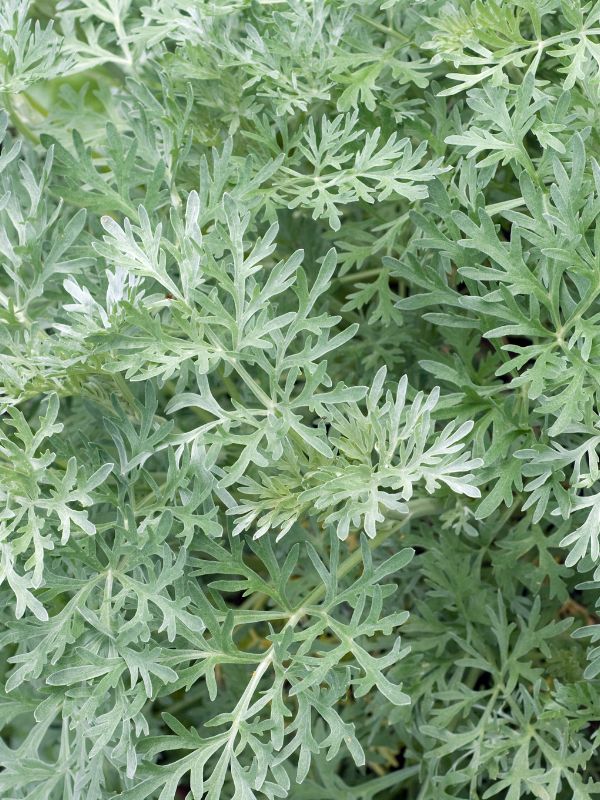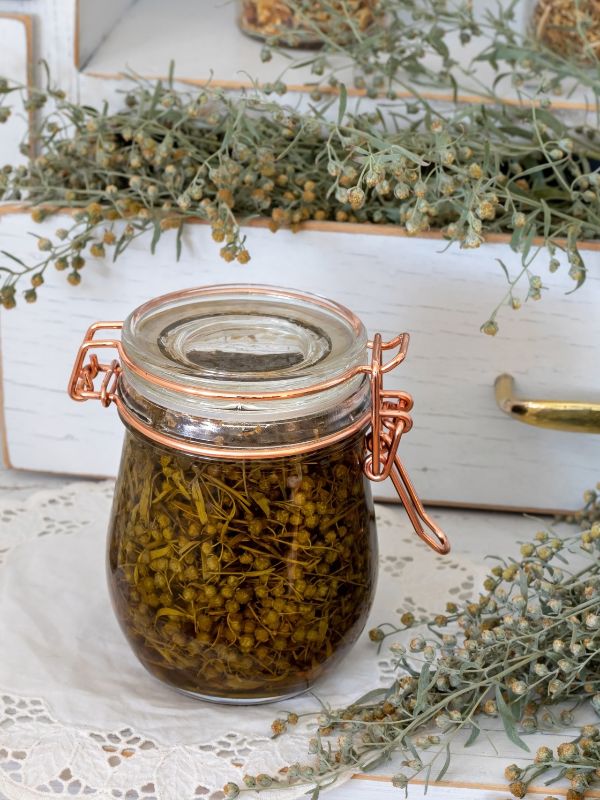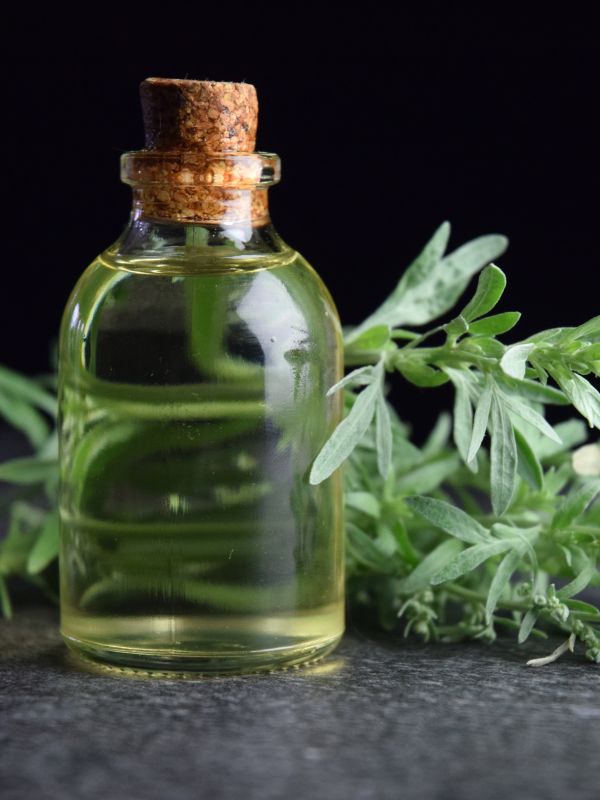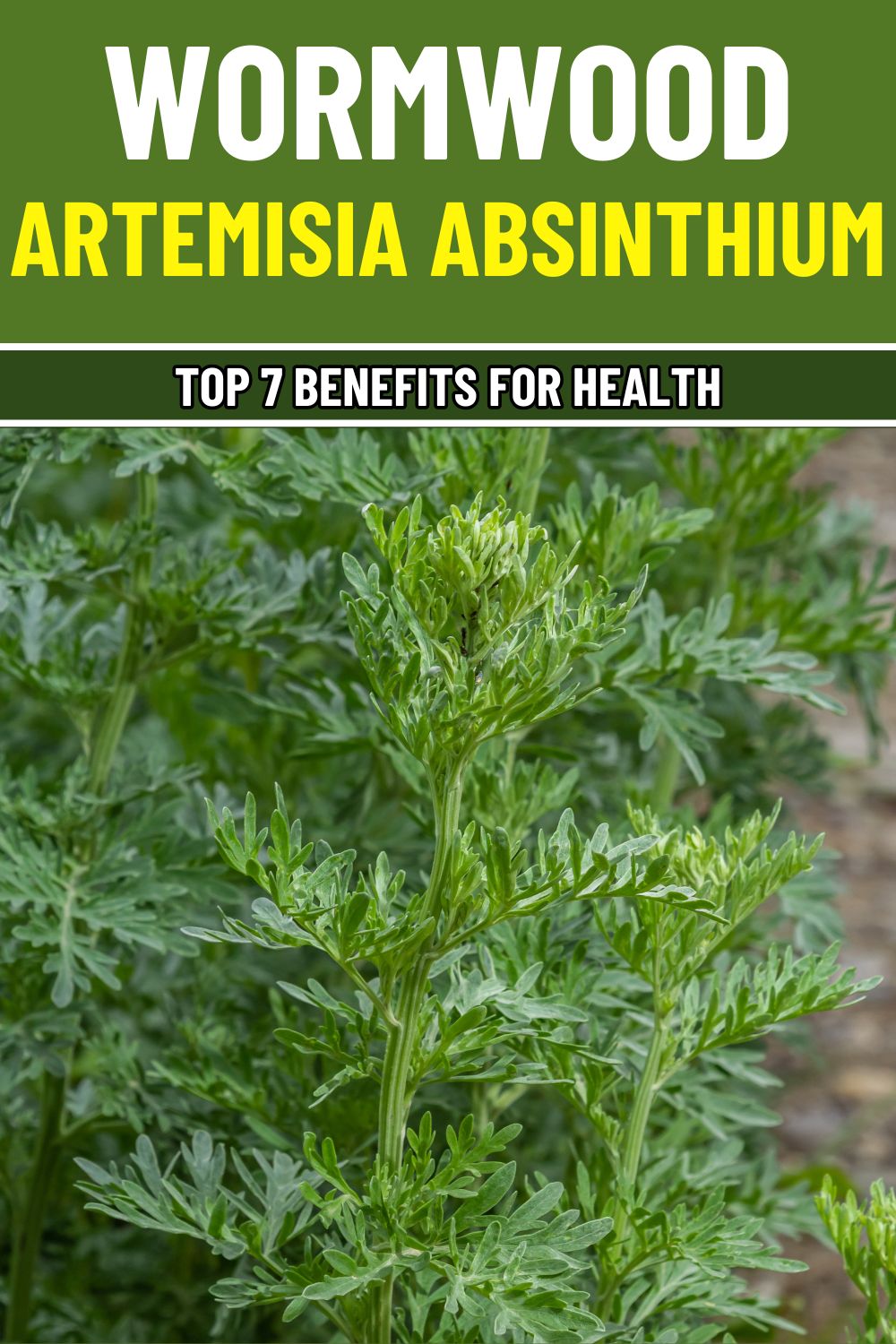Wormwood (Artemisia absinthium), a perennial herb originally native to Europe, Asia, and North Africa, has gained fresh recognition for its potent health benefits.
Revered in traditional medicine for centuries, its distinctively bitter flavor comes from compounds believed to support digestion, reduce sugar cravings, and even fight off unwanted microbes.
While the herb is most commonly linked with absinthe, modern research indicates that wormwood offers far more than a strong taste; it’s a powerful botanical ally for overall wellness when used responsibly.
#1. Promotes Healthy Digestion
Wormwood’s bitter compounds, including absinthin, stimulate bile production and digestive enzymes. Consequently, this stimulation can significantly improve digestive processes.
For instance, a 2015 study in the Journal of Ethnopharmacology found that wormwood extracts improved gastrointestinal function in test subjects.
As a result of this improved function, digestion may be enhanced, reducing bloating and aiding nutrient absorption.

#2. Helps Curb Sugar Cravings
The intense bitterness of wormwood can signal your brain to temper sweet cravings. Likewise, researchers suggest improved dietary habits often arise when individuals incorporate bitter foods into their routines.
For instance, a 2017 study published in Appetite found that participants who regularly consumed bitter foods reported reduced sugar cravings and made healthier dietary choices over a six-week period.
In particular, 100 grams of dried wormwood leaves may contain a small amount of vitamin C (around 2–4 mg), providing mild antioxidant support.
Therefore, better sugar control can potentially assist with maintaining a balanced diet and healthy weight.

#3. Anti-Inflammatory Effects
Wormwood’s antioxidants, such as flavonoids and sesquiterpene lactones, help combat oxidative stress and soothe inflammation.
Moreover, research published in Inflammopharmacology indicates that wormwood extracts reduced inflammatory markers in animal studies.
Consequently, this anti-inflammatory benefit could provide relief for individuals dealing with inflammatory conditions like arthritis.

#4. Antimicrobial and Antiparasitic Properties
Traditional medicine has relied on wormwood to tackle parasites and infections for centuries.
Similarly, modern laboratory tests suggest wormwood’s thujone content, among other compounds, helps inhibit certain microbes and parasites.
Hence, if used responsibly, wormwood may contribute to a healthier internal environment by minimizing harmful organisms.

#5. Potential Liver Support
Early studies suggest that wormwood may help protect liver cells from oxidative damage. Even so, more human research is needed to confirm its hepatoprotective effects.
Nevertheless, a stronger liver defense could contribute to better metabolic wellness overall.
#6. May Improve Gut Flora Balance
Wormwood’s antimicrobial action can help suppress harmful bacteria in the gastrointestinal tract. Accordingly, balancing gut flora often translates to better immune function and nutrient absorption.
Therefore, this benefit could enhance overall vitality when combined with a healthy diet and lifestyle.

#7. Aids in Combating Free Radicals
Wormwood features small amounts of vitamin C and other antioxidants that can neutralize free radicals. Over time, reduced oxidative stress may slow certain aspects of aging and support healthy skin.
Ultimately, this protective effect complements wormwood’s other health-promoting properties.

How to Add Wormwood to Your Routine
- Tea or infusion: Steep 1 teaspoon of dried wormwood leaves in 1 cup hot water for 5–7 minutes. Add a touch of honey if the bitterness is overpowering. It is best to drink this infusion once or twice a day, preferably before meals, to help stimulate digestion.
- Tincture form: You can use a few drops of a commercial wormwood tincture by following the label’s instructions. Be mindful that tinctures are more concentrated, so always adhere to the recommended serving size. Diluting the tincture in water or juice may help mask the bitter taste.

- Capsules or tablets: Choose capsules if you prefer a measured dose without the intense flavor. Make sure to check the label for concentration levels and potential fillers. Follow the manufacturer’s dosage recommendations.
- Essential oil (External use only): You must avoid ingesting wormwood essential oil because of its high thujone content. You can dilute a drop or two in a carrier oil, like coconut or olive oil, and apply it topically for potential antimicrobial benefits.

Cautions and Precautions
Wormwood contains thujone, a powerful compound that becomes toxic in large quantities. Exceeding the suggested dosage can lead to neurological issues, such as seizures, by affecting the central nervous system.
Certain individuals should abstain from using wormwood, including pregnant or breastfeeding women, due to the herb’s potential to trigger uterine contractions. Those with allergies to Asteraceae plants (e.g., ragweed) should exercise caution.
If you’re taking prescription medications, especially those related to blood clotting, diabetes, or seizures, talk to your doctor before adding wormwood to your regimen.
Disclaimer
This article is intended for informational purposes only and does not replace professional medical advice.
Always consult a qualified healthcare provider before adding any new supplement or herb to your daily routine.

Top 7 Reasons to Add Wormwood to Your Wellness Routine
